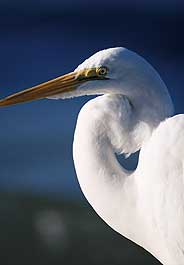In the unusual disaster playing out in the Gulf of Mexico, the most difficult part of our work is being patient. We all know that when the oil reaches the American coastline, there will be enormous consequences -- but we don't know quite where or when. The Humane Society of the United States is monitoring the situation by the hour, and we've pledged to the lead agencies that we stand ready to help.
 During the past week, we have taken many steps to avail our resources to individual shelters and wildlife groups, counties and parishes, and state and federal agencies. We have sifted through our army of National Disaster Animal Response Team volunteers to find those with the training and expertise that can be of the most relevant benefit to a potential deployment of human assets. Our wildlife rehabilitation experts at The HSUS animal care centers, including the Wildlife Care Center in South Florida, one of the largest wildlife rehab facilities in the country, are gearing up to treat or house any of the affected Gulf Coast animals if necessary. And our own Emergency Services team, while also monitoring the record flooding in Nashville, Tenn. and preparing for our Animal Care Expo to be held in the city next week, have readied our equipment and are on standby for deployment from wherever they may be when the call comes.
During the past week, we have taken many steps to avail our resources to individual shelters and wildlife groups, counties and parishes, and state and federal agencies. We have sifted through our army of National Disaster Animal Response Team volunteers to find those with the training and expertise that can be of the most relevant benefit to a potential deployment of human assets. Our wildlife rehabilitation experts at The HSUS animal care centers, including the Wildlife Care Center in South Florida, one of the largest wildlife rehab facilities in the country, are gearing up to treat or house any of the affected Gulf Coast animals if necessary. And our own Emergency Services team, while also monitoring the record flooding in Nashville, Tenn. and preparing for our Animal Care Expo to be held in the city next week, have readied our equipment and are on standby for deployment from wherever they may be when the call comes.
Due to the hazardous nature of this spill, there are specific requirements for volunteers and responders at all levels, from the ongoing pre-event beach cleanup, to the post-event needs. BP Oil and the Occupational Safety and Health Administration have developed three personal safety training modules, one of which will be required for any responder, in any capacity. Our team has facilitated locations throughout Florida for all of these classes, and we are actively notifying our volunteers and constituents where they can go to have this training.
Our thanks go out to those groups and individuals laying out booms, dispersing agents, and burning oil, in an attempt to minimize the volume of oil that will make landfall. Our friends from the U.S. Fish and Wildlife Service, Tri-State Bird Rescue & Research, International Bird Rescue Research Center, and Oiled Wildlife Care Network are providing a much needed service, and have our deepest respect for their professional response. The HSUS stands ready to assist in this time of crisis.
This post originally appeared on Pacelle's blog, A Humane Nation.
